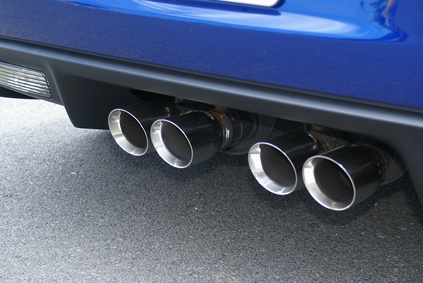
Gasoline coming from an exhaust system is a sign of an engine problem. This may be due to the fuel injection system sending too much gas into the cylinder or an ignition problem that is causing the gasoline to not be burned.
Worn spark plugs or spark plug wires are often the cause of ignition problems. The spark plug wires should be inspected for damaged insulation, while the spark plugs should be inspected for carbon fouling or wear. A faulty ignition coil or ignition module may cause misfire as well.
A rich misfire is a misfire caused by too much fuel in the air/fuel mixture in the cylinder. This may be caused by a leaking fuel injector, faulty oxygen sensor or faulty fuel pressure regulator. A diagnostic scan should be completed to locate the problem. Diagnostic scan tools can be purchased at an auto parts store. A dealership or repair shop also can run the scan.
Low compression in one of more cylinders may cause incomplete ignition resulting in gasoline in the exhaust system. To test compression, a compression gauge is attached to a spark plug hole (with the spark plug removed) and the engine cranked. Low compression is typically a sign of a bad valve, but ring and cylinder damage may cause compression problems as well.